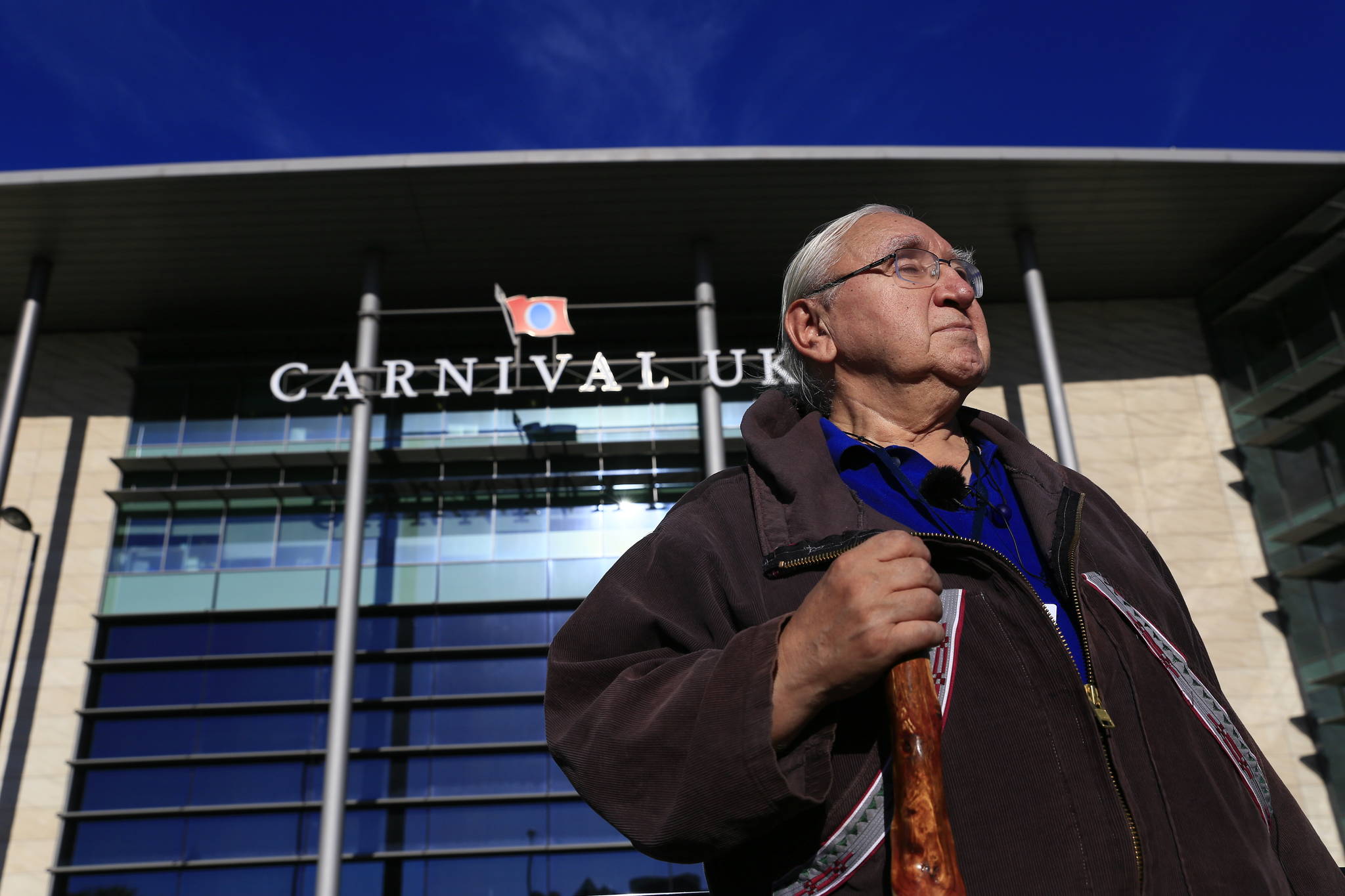Alaska indigenous leaders traveled to the United Kingdom this week to deliver a petition asking a cruise industry giant to stop using inexpensive fuel believed to be harmful to the environment and human health.
Heavy fuel oils, explained Bristol Bay petitioner Verner Wilson, take longer to break down in the marine environment, and burning them emits more environmentally-harmful chemicals than other fuels. Carnival and other cruise lines use the fuel as an inexpensive alternative.
The International Maritime Organization has already banned heavy fuel oils in the Antarctic.
The IMO has proposed a similar ban in the Arctic, but that could take as long as 2021 to work through the IMO proposal process, according to media reports. In the meantime, Wilson said he’d like to see Carnival take the lead by ending its HFO use in cruises to Southeast Alaska or anywhere north, he told the Empire from London.
“It’s a very dangerous fuel. It’s the thickest, dirtiest fuel,” Wilson said.
A 2018 report showed that Carnival carried 11 million tons of heavy fuel oil through the Arctic in 2015. The threat of an oil spill scares Wilson, a Dillingham resident, but so does the burning of the fuel itself. Heavy fuel oils have been shown to contain more pollutants than alternatives.
Delbert Pungowiyi, President of Native Village of Savoonga, on St. Lawrence Island, joined Wilson in delivering the petition to Carnival’s Tom Strang, senior VP of Maritime Affairs.
Strang couldn’t be reached for comment Thursday, but Carnival provided an email statement to the Empire through representative Roger Frizzell.
“This campaign is well-intentioned but misguided,” Carnival’s statement reads, “especially given our commitment and investment in new sustainable technologies such as LNG, Exhaust Gas Cleaning Systems and new shore power systems.
“We only have a limited number of sailings to this region, and we already treat the Arctic as a special protected zone where we will only sail our ships to the region with the use of generation Exhaust Gas Cleaning Systems that purify the air and water. These systems have proven to be a better environmental solution than Marine Gas Oil when it comes to protecting the environment, so it fits with our corporate-wide commitment to be an environmental leader.”
Wilson said the company representative listened to their concerns, but didn’t make a commitment to move away from heavy fuel oils.
Heavy fuel oils emit more black carbon than alternatives, according to the International Council on Clean Transportation. That type of carbon has been found on the Mendenhall Glacier and could contribute to melting.
Burning heavy fuel oil also puts more sulfur into the air, according to the ICCT. Sulfur emissions are controlled in America, but cruise lines are allowed to install scrubbers to clean sulfur from their emissions, something that’s changed the color of emissions for ships that visit Juneau, according to the ICCT.
A problem remains with what to do with the sludge-like byproduct the scrubbers produce. This summer, Ketchikan city officials say a Carnival subsidiary discharged that sludge in Ketchikan waters, according to radio station KRBD.
Several Carnival ships were also found this summer to have violated air and water quality regulations in Juneau and Ketchikan.
A 2018 study found that of the 63 cruise ships which operated in the Arctic in 2015, 40 were fueled by HFO. Carnival owns eight of them.
Carnival is the largest cruise line operator in the world. Among its Juneau operators are Carnival Cruise Line, Holland America Line and Princess Cruises.
• Contact reporter Kevin Gullufsen at 523-2228 and kgullufsen@juneauempire.com. Follow him on Twitter at @KevinGullufsen.

